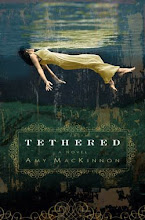Choices in Fear
By Hannah
Writing is not a word I associate with fear. Writing means freedom, ideas, passion. Writing is communication, frustration, craving, exploration. I love the craft, improving on it, the learning, the doing. There are many things going on in writing. Not fear. Fear is being present yet powerless when action is needed, when doing nothing, even, is a conscious choice with impact.
Fear in this business comes to me at the thought of sending my work into the wider world. The work is complete, yet it is not everything I have to say. There is so much more. Will it be heard the right way, heard at all, be something to which others respond? Where is my control?
What are the choices?
Choice One, of course, is never send it out. What’s done is done; use it as a learning experience. Get going on that next story lurking, pushing, waiting its turn. This choice can be tempting.
Choice Two, to set out all options, is to shop around draft one. Don't know about your first drafts, but in my case, that would be ugly. I am a rewriter, so while this may be a choice, it is not an option.
Choice Three: Rewrite until it perfect, until it contains everything I know and everything I have learned. This endless cycle could amuse me for years. Of course, it could get me kicked out of Group, faster than Choice One. Not an option.
Choice Four: Rewrite until it is the best it can be at the moment. Perhaps it does not have to be perfect to meet a level of perfection I can live with. Linda Sue Park rewrites. She won a Newbery for the beautiful A Single Shard, rewritten only six times after the first draft. How does she know when it is ready, when she is ready? I will ask her; I will let you know. In turn, you have to share how you know your stories are ready for the wider world.
I am down to Choices One and Four. Interesting, in that while the fourth option creates the most fear, it is the one I have to -- will -- make happen. I am rewriting already, and everything Group loved about my first draft is there, plus more. The stakes are higher, or for those who prefer a different turn of phrase, it is more compelling. I am excited to show it to Group. They will be caring, yes, but tough. They will be supportive, but honest. The most curious thing is that getting it to them again is not daunting, but exciting. That means something. My story might be ready, or very close to. I might be ready, too.

